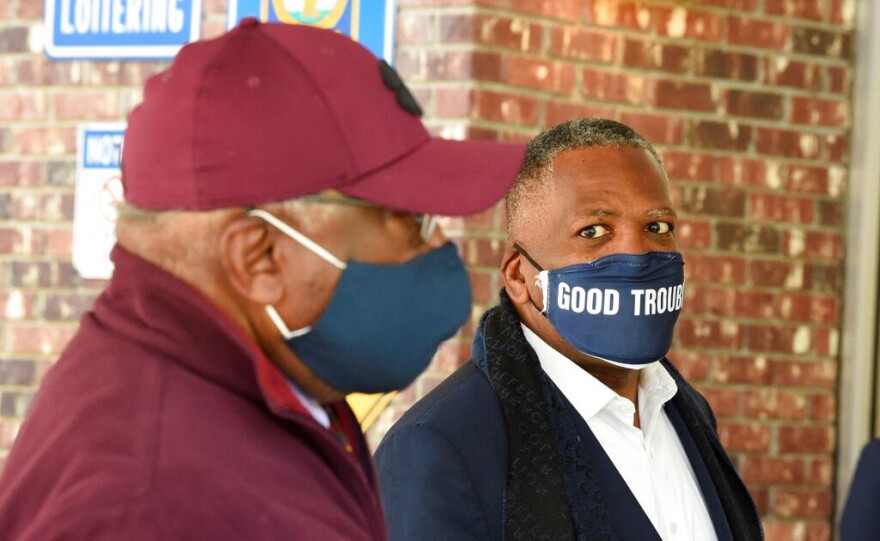COLUMBIA, S.C. (AP) — South Carolina's highest court on Thursday tossed out a school mask mandate in the state's capital city, saying it contradicts a state budget measure aimed at preventing face covering requirements.
State Attorney General Alan Wilson had sued the city of Columbia after its City Council passed the ordinance requiring masks at elementary and middle schools. City leaders said the mask requirement, which carries a $100 violation fine, was meant to protect children too young to be approved for the coronavirus vaccine.
But Wilson argued the city's mask rule conflicts with the budget requirement that went into effect July 1 and bans school districts from using appropriated funds to require face coverings.
On Thursday, the state Supreme Court sided unanimously with the attorney general. The Columbia ordinance is written so that the burden of enforcing the mask rule falls on school employees, “all of whom have an obvious connection to state-appropriated funds," wrote Justice John Kittredge.
That means school employees have to choose between violating state or city laws, the opinion reads.
“The City has made clear that every school employee is in the crosshairs,” Kittredge wrote. “Simply put, whether intentionally or inadvertently, the City threatens all school personnel with far-reaching and unknown legal liability unless all school personnel ensure obedience to the ordinances.”
Attorneys for Columbia had argued days prior that city and school authorities could draw from separate pots of money, such as local funds, to enforce mask-wearing. They also claimed the legislature overstepped constitutional boundaries by putting the mask rule — a policy unrelated to state finances — in the budget, which aims to raise and spend money.
“The Court emphasized what we’ve been saying all along, that we are not arguing mask policy, we are arguing the rule of law," Wilson’s office said in a statement.
Both the court and Wilson have emphasized the legal debate does not touch on whether masks themselves are effective or whether they should be required.
The Columbia effort put Mayor Steve Benjamin, a Democrat, at odds with Republican Gov. Henry McMaster as well as the GOP-controlled Legislature, which recently barred such policies for all public schools.
In a statement provided to AP, Benjamin said Thursday the city’s stance "is the same now as it was before we enacted our emergency ordinance requiring masks in our elementary and middle schools: we will always act to preserve and protect the health and safety of our children.”
“This is a sad day for children in South Carolina,” Benjamin added. “What is even sadder is the people who have been elected to protect them, who should always and only act to keep them healthy, educated and alive, won’t fight for them. With record numbers of our children falling ill to this deadly virus, we pray for our children.”
In a tweet by his office, McMaster said the court had reached a sound conclusion and urged those eligible for vaccinations to get the shots.
“A parent’s right to decide what’s best for their child is now definitively protected by state law," the tweet reads.
The budget provision by lawmakers took effect July 1, when the state was averaging less than 150 COVID-19 cases a day. Now the state is seeing more than 5,000 new cases daily, and deaths are spiking as hospitals become strained at a time when children return to school and vaccinations lag.
The court's ruling comes as thousands of students and staff are quarantined across South Carolina. Health officials have already tracked more than 3,000 school-related COVID-19 cases this semester, and schools across the state have had to move to virtual learning to try to staunch outbreaks.
Some school districts had implemented mask mandates in defiance of the budget requirement, though many waited for the outcome of Thursday's court ruling.
The state is also facing a legal challenge in federal court, where disability rights groups and parents of children with disabilities represented by the ACLU sued last month to reverse the state ban on mask mandates.
The federal Department of Education has also opened a civil rights probe into South Carolina and four other Republican-led states with similar bans on school mask mandates, saying the policies could amount to discrimination against students with disabilities or health conditions.
___
Meg Kinnard contributed to this report.


